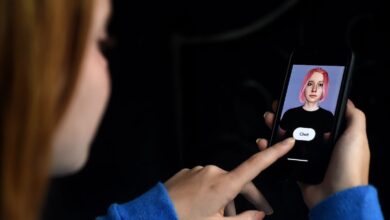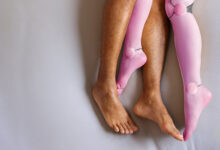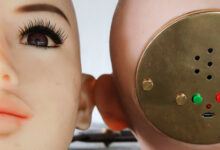Claims about social benefits of sex robots greatly overstated, say experts

Sex robots are coming, but the argument that they could bring health benefits, including offering paedophiles a “safe” outlet for their sexual desires, is not based on evidence, say researchers.
The market for anthropomorphic dolls with a range of orifices for sexual pleasure – the majority of which are female in form, and often boast large breasts, tiny waists and sultry looks – is on the rise, with such dummies selling for thousands of pounds a piece.
While some are simple sex dolls, others are sexbots that can move and talk, some with a choice of nipples and dishwasher-proof labia. Indeed the industry is churning out ever more realistic mannequins featuring artificial intelligence, lubrication systems and even vaginas that can mimic an orgasm.
“Our conclusion is that there are a lot of health claims with no evidence” said Susan Bewley, professor of women’s health at Kings College London and co-author of the new research. Some have suggested that such claims might be more about normalising the use of such dolls than providing actual health benefits.
“In a way [this research] is a sort of academic plea [not to] make false claims, and if there is something genuine in this beyond the creation and marketing of a new device, then let’s study it properly,” said Bewley.
While some argue sexbots are simply the next step in a booming $30bn sex tech industry, others say they are a world apart from the humble vibrator and have serious social implications.
The latest study is not the first to look at sexbots: last year a report by the Foundation for Responsible Robotics also raised questions about the potential benefits and harms of such devices, noting there are already sex-doll brothels in Asia.
Writing in the journal BMJ Sexual and Reproductive Health, Bewley and co-author Dr Chantal Cox-George searched databases of scientific papers but found none that studied the health impacts of sex robots.
However the hunt, together with discussions with experts in the field, revealed that the anthropomorphic dolls are being hailed as providing a host of benefits including, offering sexual companionship to lonely or marginalised individuals, and potentially helping to treat sex offenders and paedophiles.
Looking into the debates around such topics, the authors highlight a number of issues, including who is legally responsible for injuries and infections from sexbots, and that rather than protecting sex workers, the dolls might fuel exploitation of humans.
And while Bewley notes robots are being explored for use in health and social care, she and Cox-George say its unclear if robots could help in the bedroom, for example aiding people with sexual dysfunction or who are lonely, noting such robots might cause a rift with human partners or even that robots’ lack of emotion might cause distress. “While a human may genuinely desire a sexbot, reciprocation can only be artificially mimicked,” they write.
As for the idea that sexbots could help to treat paedophiles and protect real children – one company already produces childlike dolls – the team say there is no evidence for the claims, noting that it might normalise such acts and even increase the risk of sexual assault and rape for children and adults. “It is a powerful idea. It might be true, it might be untrue – but the fact that someone who is selling these dolls is saying this, [means] you have to take [it] with a big pinch of salt,” said Bewley.
Last year a childlike sex doll intercepted by UK border police led to the arrest of the man who ordered it after the force discovered he had child abuse images on his computer.
The team note there are further questions, including whether sexbots, with their exaggerated forms based in fantasy, could influence what is deemed attractive in actual women – while there are also concerns that some sexbots come with a non-consensual mode, potentially allowing users the opportunity to act out rape.
Prof Oliver Bendel, an expert in machine ethics from the University of Applied Sciences Northwestern Switzerland, who was not involved in the study, said he is not in favour of banning the development of sexbots or “love dolls” and that the technology will remain niche, with most people preferring sex with other humans.
But Bendel agreed research is needed. That said, there is a problem. “Most universities in Europe don’t want anything to do with this topic. Most scientists find the subject repulsive,” he said, adding that researchers might find it hard to recruit study participants.
“It’s an old human dream to have artificial love partners. Pygmalion created a female sculpture and laid down with her. Aphrodite brought the sculpture to life,” he said. “It is interesting for science and business to create artificial people. But we must not leave the people alone with the machines.”
You can read the full article from the source HERE.
-
Sale!

Aurora: Tender Sex Doll
Original price was: $2,799.00.$2,599.00Current price is: $2,599.00. Buy Now -
Sale!

Dominique: Thick Sex Doll
Original price was: $2,499.00.$2,199.00Current price is: $2,199.00. Buy Now -
Sale!

Auburn: Red Head Sex Doll
Original price was: $2,199.00.$1,899.00Current price is: $1,899.00. Buy Now






